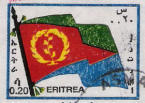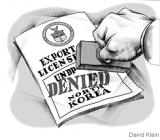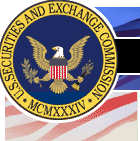 In his address to the United Nations today, President Bush announced the administration’s intentions to impose new sanctions on Burma and its military regime:
In his address to the United Nations today, President Bush announced the administration’s intentions to impose new sanctions on Burma and its military regime:
The United States will tighten economic sanctions on the leaders of the regime and their financial backers. We will impose an expanded visa ban on those responsible for the most egregious violations of human rights, as well as their family members.
Aside from telling additional and as yet unnamed Burmese officials and their families that a trip to Disneyland won’t be in the picture for them any time soon, the President’s statement was not altogether clear about the precise sanctions that would be imposed.
Tom Casey, a State Department spokesperson, seemed to be caught up short in today’s daily press briefing by the State Department when reporters pressed for more details on the proposed new sanctions:
To the extent that we have specific names to add or new measures to announce, we’ll let you know.
Translation: “I have no earthly idea.” Elsewhere, Casey seemed to suggest that the list of individuals that would be subject to blocking orders might be expanded.
So what are the possibilities here for tightening the current economic sanctions on Burma. To be sure, as noted, the list of government officials subject to travel bans and subject to blocking orders could be expanded and that seems to be likely to be at least the minimum that will occur. But since the current sanctions aren’t comprehensive, there are other possibilities.
One possibility would be expanding export sanctions. The current sanctions only forbid exports of financial services to Burma. Accordingly, that export ban could be expanded to cover all goods and service subject only to the limits of the Berman amendment, 50 U.S.C. § 1702(b)(3), and the Trade Sanctions Reform Act of 2000 (TSRA). The Berman Amendment prohibits export controls on “informational materials” and TSRA forbids a unilateral sanction against a foreign country covering agricultural products, medicine or medical devices without express Congressional approval.
Another possibility includes prohibition in dealing in Burmese-origin goods and services. That would prohibit dealing in such goods and services even though they had not been imported into, or exported from, the United States. A similar provision is included in the Iranian Transaction Regulations.
If I look into my somewhat cloudy crystal ball, my guess is that the White House will simply expand the lists of Burmese officials subject to blocking and visa bans. But if the White House gets serious about the matter, we could well see an expansion of export bans and a prohibition in dealings in Burmese-origin goods and services.

 Posted by
Posted by  Category:
Category: 

 During a
During a  An
An  Amnesty International, according to a
Amnesty International, according to a  A new link has appeared on the
A new link has appeared on the 

